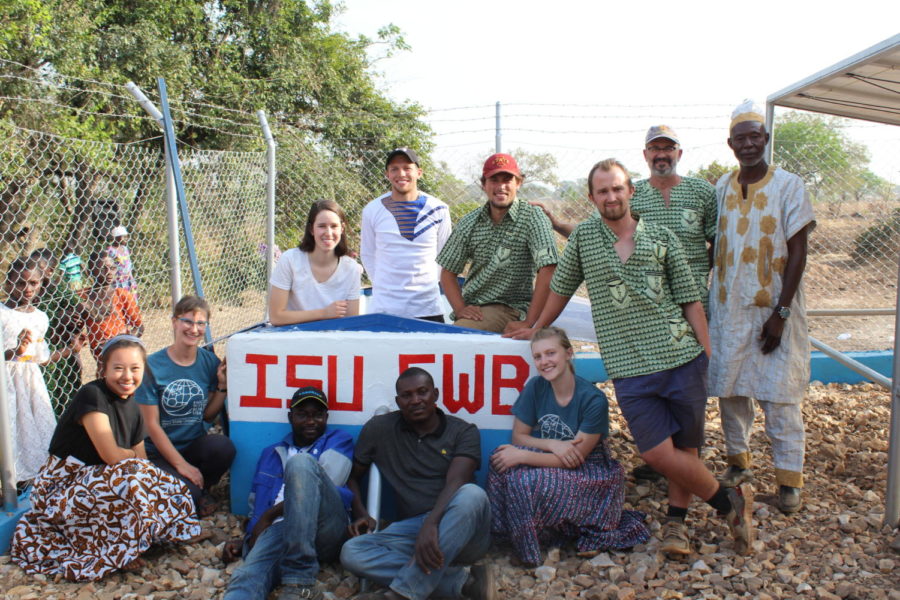Iowa State students partner with university in Ghana
Engineers Without Borders is a student organization that travels to Ghana every Winter Break to implement the designs they create throughout the school year to help the Ghanaian community.
October 29, 2020
Iowa State’s chapter of Engineers Without Borders has partnered with the Kwame Nkrumah University of Science and Technology (KNUST) to collaborate on community building projects.
KNUST is located in Ghana, where Engineers Without Borders has been active for the past six years.
Dirk Maier, Iowa State professor in agricultural and biosystems engineering and Engineers Without Borders co-adviser, explained the goals of this new partnership as well as why the chapter decided to partner with KNUST.
“The main goal of the new partnership is to have students working together from the two universities in that very poor community that we have been active in for the past six years,” Maier said. “At universities like KNUST, the students are expected to engage with community development, but we’ve actually created a bridge for them to do that in a community that they previously didn’t have access to.”
Maier said this is a very unique opportunity for Iowa State’s Engineers Without Borders chapter with the group receiving funding from the U.S. State Department Bureau of African Affairs for the University Partnerships Initiative.
“There’s not a lot of other chapters around the country that necessarily have access to this kind of funding,” Maier said. “So what this allows us to do is to do more than just project work. It really allows the students to travel and spend time together from both universities.”
Ellenor Whitney, sophomore in civil engineering and vice president of communications for Engineers Without Borders, said students intend to work on projects within this new partnership.
“Right now, we have the clinic project, which that is the biggest, new project we have going on,” Whitney said. “We have a rainwater catchment and irrigation system, we’re still monitoring the water system that we implemented a couple years ago.”
Maier also said they are working on a kitchen stove project and improving the rain catchment system.
“We also do a kitchen stove one that has to do with energy usage and wood usage,” Maier said. “We’re collaborating on all of those, but the most immediate one is the rainwater catchment system. We expect that the students from KNUST will travel to this upper Northern region and implement the first project phase on our behalf.”
Maier said all the students are collaborating virtually.
“Our student teams are working with student teams at KNUST, that is the virtual part since we cannot travel at ISU,” Maier said. “They are able to travel within the country, so we are working with them to actually implement some of our project work remotely so that they can go up there and do work that we normally would do, and they are gonna do on our behalf.”
Maier said this Engineers Without Borders chapter gets involved with the projects right away.
“We have about 80 students active in the chapter,” Maier said. “They’re all working in different teams collaboratively on these projects. The idea is that when we have students coming, whether they are new members or returning members, that they get to work with us on these projects right away.”
Maier and Whitney also said students of all majors and interests take part in their cause; it is not just limited to engineers.
Maier said students who travel with the chapter gain new experiences and perspectives of the world.
“They are involved with an international development project,” Maier said. “That opens up the mindset of students in terms of what conditions people in other parts of the world, specifically in Sub-Saharan Africa, live. When we travel with the travel team, we live in the community with the people.”







